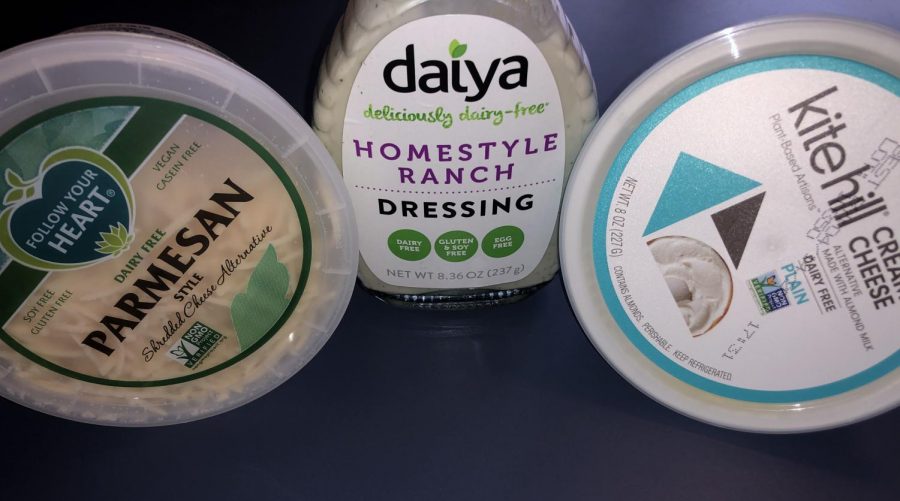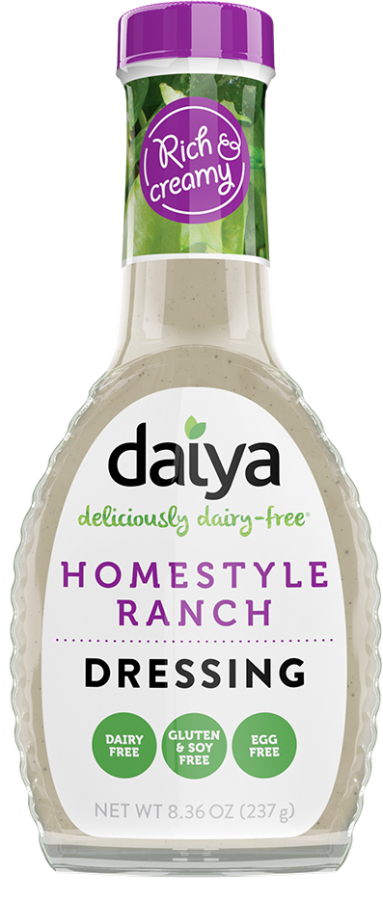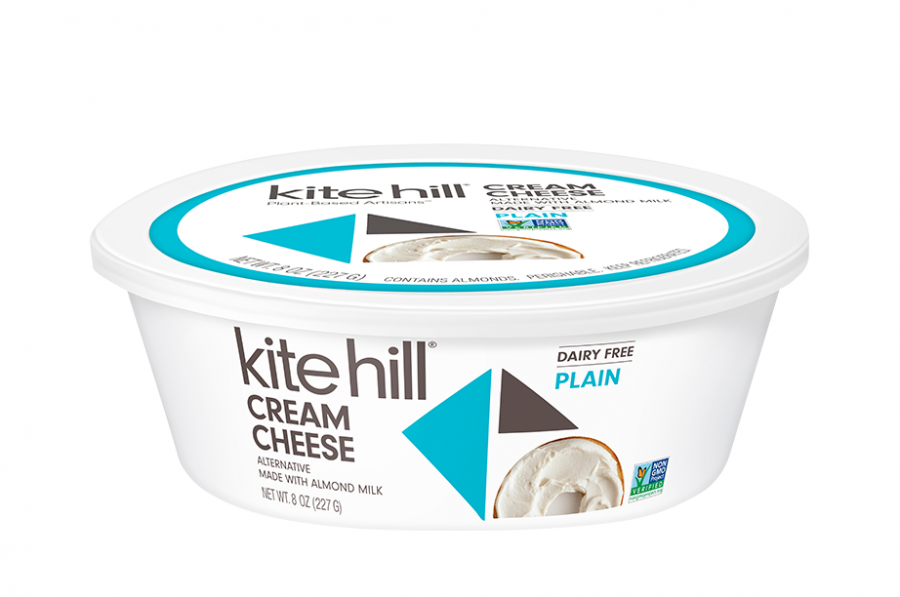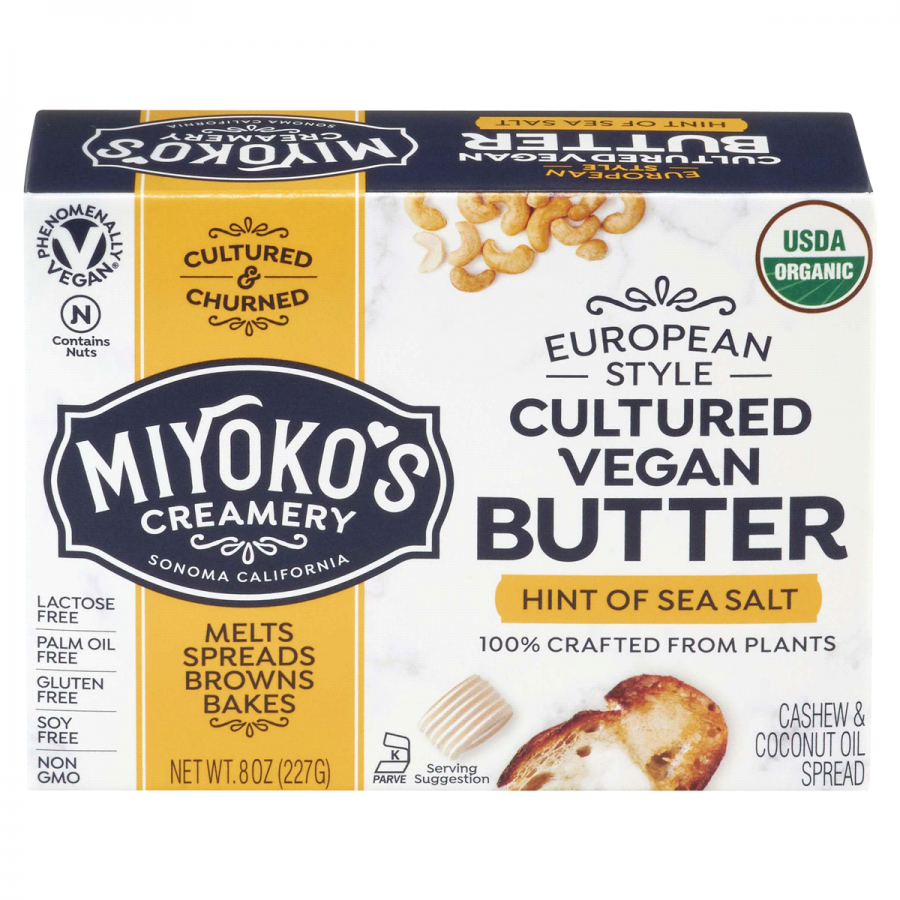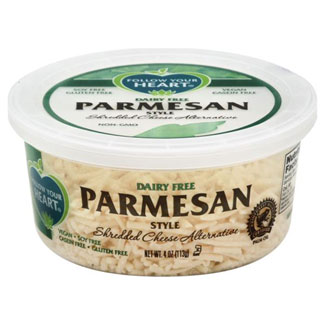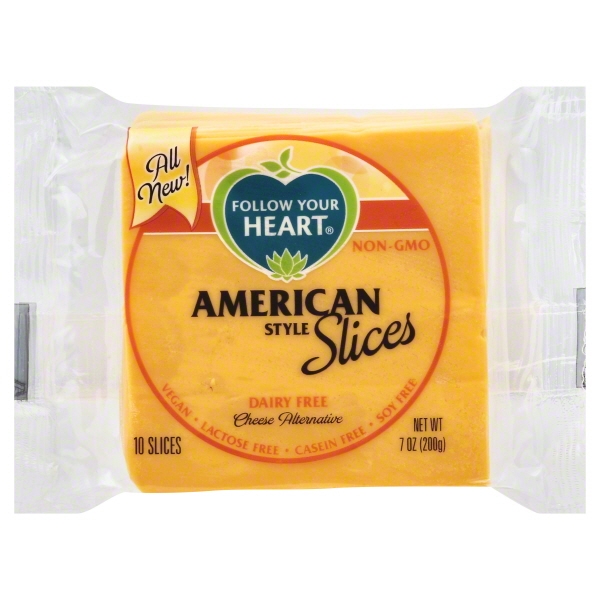Got Milk? Milk used to be just milk. Sure, there were choices to make in the dairy aisle — 2% or Skim? Gallon or Quart?
Maybe even chocolate milk if you were feeling fancy.
Now the choices are seemingly endless — exotic animal milk (like goats) to plant-based options — rice, coconut, soy, almond. These choices — from goat to oat — are a clear indicator that consumers are shying away from traditional cow’s milk and moving towards alternatives.
This year’s Super Bowl, where a 30-second spot cost $5.6 million on average, featured a commercial advertising (somewhat poorly) Oatly oat milk as an alternative to cow’s milk. A Super Bowl ad isn’t an investment a company makes if they don’t think it will pay off. Among the Super Bowl’s 101.3 million viewers and Americans in general, non-dairy alternatives are rising in popularity. Oatly, founded in 1994 by oat milk’s inventor, has become a brand valued at $2 billion as of 2019, according to Forbes.
As brands like Oatly expand, so do the choices in the dairy aisle. Milk is no longer the only dairy product being replaced on local grocery store’s shelves.
Non-dairy alternatives to cheese, a product that has captured America’s heart as the most beloved dairy product, provide plant-based substitutes. Cheese, not just the cringe-worthy phrase your parents make you say before taking a picture, is a staple in American diets. The average American ate approximately 40 pounds of cheese in 2019, according to the U.S. Department of Agriculture.
With this massive cheese intake comes possible risks. While cheese has captured America’s heart — it isn’t doing it any favors. Dairy products — especially cheese — are a significant source of saturated fat. Saturated fats can raise cholesterol levels, increasing the risk of heart disease: the leading cause of death in the U.S.
According to Harvard Medical School, researchers found that replacing about 5% of calories from dairy fat with a similar amount of unsaturated fat from vegetables or vegetable oil was linked to a 24% lower risk of cardiovascular disease.
Dairy products can be detrimental to a person’s health and their environment as well.
Dairy cows, according to the Institute of Agriculture and Natural Resources, generate large amounts of greenhouse gases through their burps, farts, and manure. With climate change an ever-present issue, greenhouse gases are more of a problem than ever, and the dairy industry actively contributes to the problem. Domesticated cows are the “No. 1 agricultural source of greenhouse gases worldwide” according to the University of California Davis; producing 14.5% of these global emissions, according to the Food and Agriculture Organization of the United Nations.
With the adverse effects of the dairy industry, it is worth considering moving to a cleaner plate. Non-dairy alternatives that taste like what American’s are already eating (5 Maltese dogs worth of cheese annually) do exist.
Plant-based dairy brands like Daiya, Kite-hill, and Field Roast provide products that replicate what consumers love about dairy. Specializing in products like cream cheese, ranch, and butter to sour cream, mayo, and yogurt, the alternatives are endless, thanks to these companies.
The tricky part is sorting through which of these dairy products are cream of the crop and which you should never put near your mouth ever again.
Daiya — “Homestyle Ranch” — $4.30-5.00
Although known for their plant-based dairy alternatives, Daiya is expanding its product line to include dairy-based products like pizzas and burritos. Available in most major grocery chains, it’s an affordable brand with a variety of options.
Of these options, one stands out among the competition. The brand’s “Homestyle Ranch.” Ranch lovers know that what makes a good ranch dressing is the fantastic creamy texture ranch provides. But how can a product offer a creamy texture without cream?
Well, Daiya does just that, delivering creaminess with ranch’s seasoned trademark tangy flavor. A condiment compatible with almost anything, from salads to buffalo wings, you won’t be able to tell that Daiya’s “Homestyle Ranch” is dairy-free.
Kitehill — “Plain Cream Cheese” — $6.00-7.00
Kitehill, an award-winning brand selling dairy products made out of plants, launched in 2008 and word of the company spread quickly throughout the plant-based dairy community. Kitehill now offers over 30 different products.
Using the traditional dairy production method, Kitehill leaves “enzymes and cultures” to rest overnight, creating artificial “curds and whey.” If any brand tastes the closest to dairy, it’s this one.
That includes their oh-so-creamy, cream cheese. The consistency is smooth and more spreadable than real Philadelphia Cream Cheese.
And the taste! The traditional sweet-milk tasting flavor, or cream flavor present in cream cheese, would seem hard to emulate in a non-dairy product. Somehow, Kitehill does that and more, once again beating actual dairy, this product is a must-have the next time you reach for a bagel or dip into by the spoonful.
Miyoko’s — “European-Style Cultured Butter” — $6.00-6.50
A lesser-known dairy brand (only sold in 1,000 stores across the U.S.), Miyoko’s is beginning to appear on many popular store shelves like Target and Kroger.
And for a good reason, just like Kitehill, the traditional dairy method is used to create a product largely reminiscent of real dairy.
Served in “world-class wineries and restaurants…across the nation,” clearly there is something in store for dairy lovers.
And that would be the brand’s best-selling “European Style-Cultured Butter.”
Butter is known for its intense flavor and fatty substance that can make any food taste good.
Hate Brussels sprouts? Just add butter, and this leafy green will come out tasting like a whole different food.
The magic behind dairy butter is not lost in Miyoko’s plant-based butter. The same creamy spreadability for toast, the same fatty flavor enhancer in fried foods, and the same saltiness that makes every vegetable taste spectacular — is present and beats that of real dairy butter.
Follow Your Heart — “Shredded Parmesan” — $5.00-6.00
One of the best products also happens to come from one of the most well-known brands (estimated, according to Forbes, to bring in $50 million in 2016) — Follow Your Heart.
The brand’s best-selling product, their vegan mayonnaise, would’ve been on this list if it were longer; another product provides a greater sensation to consumers’ taste buds.
Parmesan. The taste of this salty, richly flavored cheese makes it a staple in popular home-cooked dishes: spaghetti and meatballs, pizza, soup, salads, and even bread; this one is a necessity.
With it often being melted over-top of these foods, a non-dairy alternative might seem impossible to achieve.
Yet, Follow Your Heart accomplishes this meltability. Vegan cheese is often criticized for its inability to melt like real cheese. But Follow Your Heart’s Parm achieves a cheesy ooey-gooey melt and creates an even richer flavor than that of real Parmesan.
Follow Your Heart — “American Slices” — $4.20-6.00
There’s a reason Follow Your Heart brought in tens of millions of dollars since 2016, because here they are once again, with their American-style cheddar slices. This perfectly meltable cheese, a staple in so many dishes: grilled cheese, cheeseburgers, sandwiches, is essential for your fridge.
The brand accomplished meltability and the same creamy, mild, but ever-present flavor in American cheddar that so many know and love. These vegan slices create an even more robust flavor than that of real American, leaving no room to question for blandness.
Give it a try, and you might find yourself having a new go-to for your next grilled cheese sandwich!





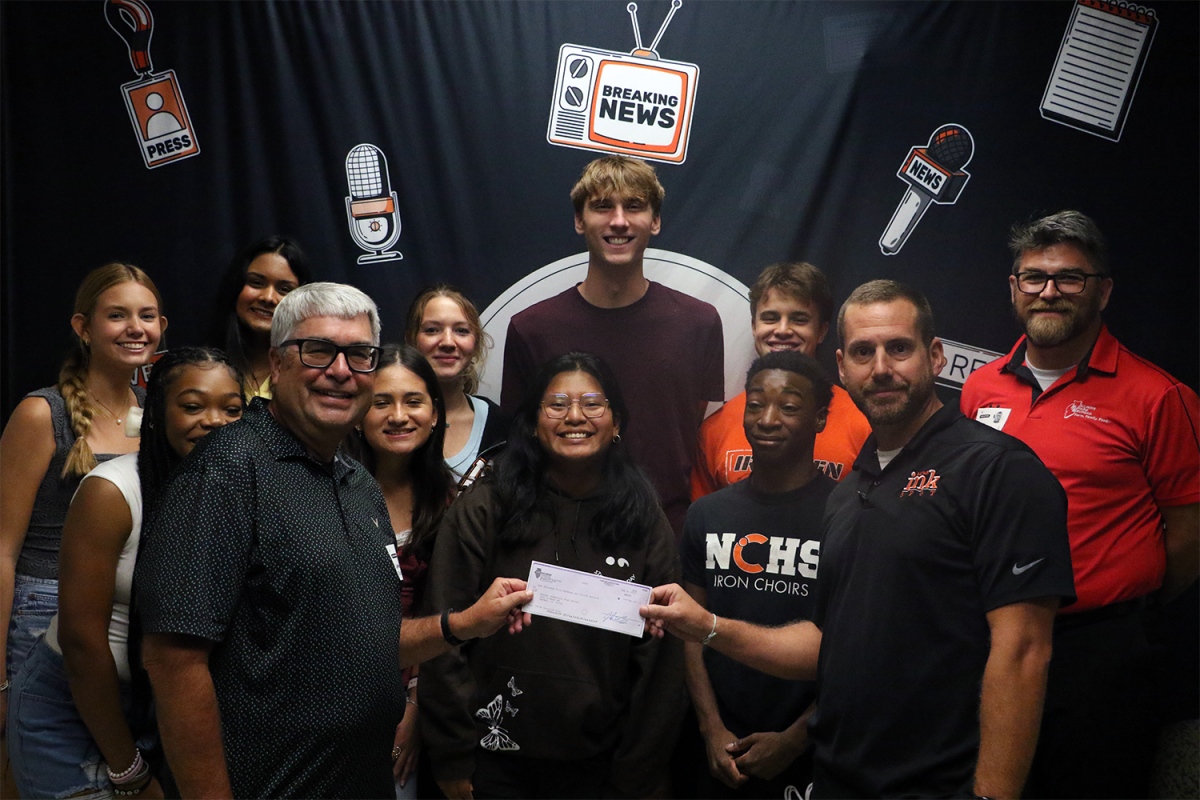
























![Week 5: Coach Drengwitz previews the Ironmen’s matchup vs. Peoria Manual, recaps Week 4 [video]](https://nchsinkspot.com/wp-content/uploads/2025/09/Week-5-v-Rams-1200x675.png)















![Halloween candy cross section quiz [quiz]](https://nchsinkspot.com/wp-content/uploads/2022/10/Candy-cover-big-900x675.png)
![Average Jonah? [quiz]](https://nchsinkspot.com/wp-content/uploads/2022/05/average-jonah-900x600.png)







![[Photo Illustration]](https://nchsinkspot.com/wp-content/uploads/2025/09/trigger-words.png)










![Postgame reaction: Coach Drengwitz on Community’s 28-17 Loss to Kankakee [video]](https://nchsinkspot.com/wp-content/uploads/2025/09/Week-4-postgame--1200x675.png)
![Week 4: Coach Drengwitz previews the Ironmen’s matchup vs. Kankakee [video]](https://nchsinkspot.com/wp-content/uploads/2025/09/Ironmen-v-Kankakee-video-1200x1200.png)
![Week 3: Coach Drengwitz previews the Ironmen’s matchup vs. Urbana [video]](https://nchsinkspot.com/wp-content/uploads/2025/09/week-3-web-1200x1200.png)





![On the Spot: This or That – Halloween [video]](https://nchsinkspot.com/wp-content/uploads/2024/10/tot-Halloween-YT-1200x675.png)
![On the Spot: This or That – Fall favorites [video]](https://nchsinkspot.com/wp-content/uploads/2024/10/ots-fall-web-1200x800.png)
![On the Spot – Teachers tested on 2023’s hottest words [video]](https://nchsinkspot.com/wp-content/uploads/2024/01/On-the-Spot-Teachers-tested-1200x675.png)








